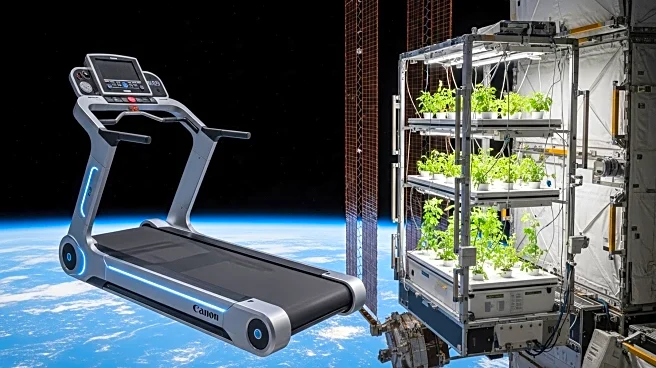What's Happening?
NASA's Expedition 73 crew aboard the International Space Station is conducting research on the effects of microgravity on bone and plant cells, alongside space fitness studies. The crew is exploring molecular mechanisms of space-induced bone loss and processing plant cells to understand microgravity's impact on cell division. These studies aim to improve astronaut health and develop sustainable agriculture methods for future space missions.
Why It's Important?
Research on space fitness and agriculture is crucial for long-duration missions to the Moon, Mars, and beyond. Understanding bone loss in microgravity can lead to better health protocols for astronauts, while advancements in space agriculture could ensure food security during extended missions. These studies have potential applications on Earth, offering insights into aging-related bone diseases and sustainable farming techniques.
What's Next?
NASA plans to refine exercise protocols and develop lightweight equipment for future missions. The agency will continue studying plant growth in microgravity, aiming to enhance crop production in space. Collaboration with international partners may expand research efforts, integrating findings into broader space exploration strategies.
Beyond the Headlines
The focus on space fitness and agriculture highlights the intersection of health and sustainability in space exploration. It raises ethical questions about resource allocation for space research versus terrestrial needs. The cultural impact of space agriculture on future colonization efforts may also be considered.












